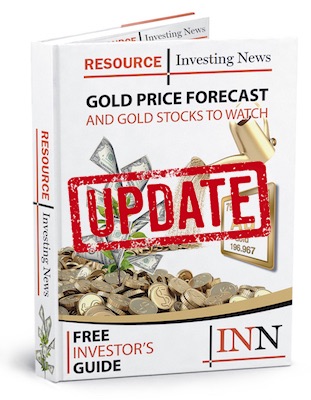By Amanda Kay
Gold is known as a safe-haven investment that people from all walks of life can turn to in times of turmoil. While its price rises and falls, interest is fairly constant.
One question that many people have is, “should I invest in gold for retirement?”
That’s a fair question, and not just because gold is a popular investment. Just think. While the gold price is subject to fluctuations, it’s risen about 110 percent in the last decade, and just over 300 percent since 2002. For those looking at investing in gold for the long term, those returns are hard to ignore.
With that in mind, it’s interesting to take a balanced look at investing in gold for retirement — after all, though gold is certainly a compelling investment, it’s not right for everyone. The lists of pros and cons below are designed to help you figure out if gold for retirement will work for you.
Gold for retirement: The pros
If you’ve already invested in gold, you’re likely well aware of the benefits. However, you may be wondering if those benefits will carry over if you invest in gold for retirement. Here’s a brief overview of the positive side of saving gold for retirement:
- Gold is good in a crisis: The gold price tends to rise during economic and political turmoil, meaning that in the face of a crisis, it’s often either stable or on the rise. Some investors thus consider it an insurance policy — “I sleep better at night owning physical precious metals“, Rick Rule of Sprott US Holdings has said. And who doesn’t want peace of mind in retirement?
- Gold is a hedge against inflation: On a similar note, gold is prized as a hedge against inflation — in other words, no matter what happens with paper currencies, the value of gold will remain constant. Another plus for those looking for a stable retirement.
- You can physically hold gold: If you buy physical gold, you’ll have a tangible asset you can access readily. That’s partially why gold has advantages in a crisis — unlike non-physical assets like stocks, you can grab hold of it easily in times of turmoil and know you have something of value.
- Gold has gained significantly: Last but not least, don’t forget the major gains gold has made in the past. As mentioned, the metal has seen big price increases not only recently, but also in the last century. And with uncertainty running rampant in the world today, it could be poised to move even higher, leaving you with more money in your golden years.
Gold for retirement: The cons
That’s a solid list of pros, but before investing in gold for retirement, it’s important to also take a look at some of the problems it can entail. Here’s a quick rundown of the other side of the argument:
- Gold doesn’t pay interest or dividends: While gold is good to have in times of turmoil and can be better to hold than paper currencies, you won’t be able to profit from your gold unless you sell it. That means you’ll have to always have an eye on the market so that you know when you should sell — perhaps not how you want to be spending your time later in life.
- Gold might not be the best inflation hedge: As discussed, gold is considered a hedge against inflation, but as some market watchers have pointed out, that may not be the case. Here’s one argument on why that’s the case.
- Stockpiling gold requires space and/or money: It’s clear that holding physical gold can be an advantage, but it also has its drawbacks. For instance, where are you going to put your gold? You could keep it at your home, but if you do that you’ll need space and a secure place to put it; both of those are potential issues for those looking to downsize for retirement. And if you want to hold it elsewhere that will cost money — you’ll also lose the ability to access your gold whenever you want.
- Gold can be volatile: We’ve already gone over the massive price gains gold has seen in the past, but it’s important to note that during that time gold has seen big drops as well. For those hoping for a stress-free retirement, these price changes could prove to be too much.
Gold for retirement: The upshot
All in all, it seems that investing in gold for retirement is much the same as investing in gold in everyday life: diversification is key. While gold can be a part of your retirement portfolio, you should make sure to balance it out. If you’re able to do that, you may see exciting returns in your later years.
This is an updated version of an article first published by the Investing News Network in 2016.
Don’t forget to follow us @INN_Resource for real-time updates!
Securities Disclosure: I, Amanda Kay, currently hold no direct investment interest in any company mentioned in this article.
The post Do You Need Gold for Retirement? appeared first on Investing News Network.
From:: Investing News Network

